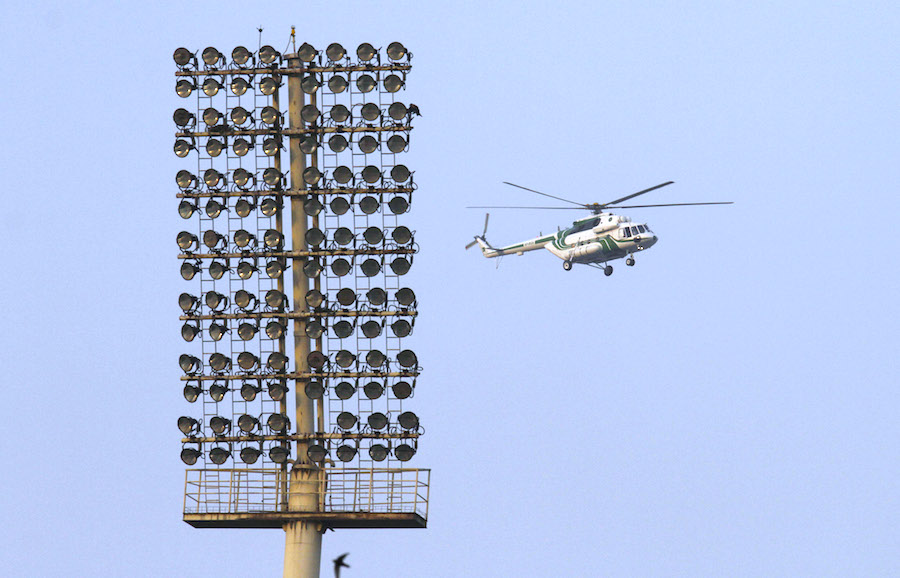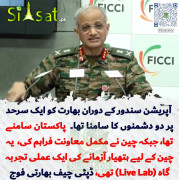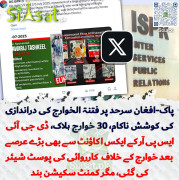NoFear
MPA (400+ posts)
Interesting piece - We experienced what Barack Obama might go through.. Dav Whatmore on Pakistan Tour
'We experienced what Barack Obama might go through'
Zimbabwe coach Dav Whatmore on the surreal and moving experience of being the first Full Member team to tour Pakistan in six year.

The Zimbabwe team makes its way to the Gaddafi Stadium. Dav Whatmore "counted at least 24 vehicles in front of the bus" AFP
Thousands of security personnel from multiple agencies, armoured vehicles, road closures, helicopters, snipers, a CCTV panopticon, and no less than three rings of security around the Gaddafi Stadium in Lahore ensured Zimbabwe's safety on their trip to Pakistan in May. It was a jaw-dropping operation, but it's in the minutiae of personal experience that the surreality of the tour made itself felt.
Dav Whatmore, Zimbabwe's coach, spent two years in Lahore during his tenure with Pakistan. He thought he had got to know the city fairly well, but his return visit, almost exactly a year after he had left, provided a whole different experience.
He decided to meet a friend for dinner during Zimbabwe's visit, which turned into an operation that involved four vehicles, a gaggle of security personnel and the clearing of the restaurant's car park.
"I thought, 'I'll leave myself half an hour to travel,'" Whatmore recalls. "I didn't realise [what it would be like]. They had two cars in front of me, and then a bike. A high-ranking uniformed police officer in the front seat of the Kombi, then two plainclothes with me in the cabin, and then two behind.
"It only took us ten minutes to go to this restaurant, and then they cleared the car park there. I felt so humbled - all this for me. I was there 20 minutes early and had to sit by myself. And then of course the trip home was also only five or six minutes. So I didn't have too much socialising."

A Pakistani ranger outside the Gaddafi Stadium during the tour AFP
International sportspersons these days often live in a bubble, cushioned by wealth, feted by fans, surveilled by the press, and out of touch with the reality of the day-to-day life of the general population. The life of a Zimbabwe cricketer is rather different, though, and the massive security apparatus unveiled for the team's landmark tour of Pakistan is something that none of them had ever experienced before.
"In the hotel, we had the whole fourth floor," Whatmore says. "Pakistan was on the third floor. Nice hotel. But you would sometimes have to excuse yourself in the corridor to get past security. And there were, I think, four different agencies. You had to walk around people to get to another room or go down to breakfast.
"[We] probably got to experience what Barack Obama might go through, or any visiting head of state. I counted at least 24 vehicles in front of the bus. We always travelled in a convoy, and there were three buses - one like a decoy bus. Similar [number of vehicles] at the back. And then two on either side of us. And all the streets were just shut. And we had two helicopters as well. You'd be looking around during training and you could see them flying over.
"Coordinating that is not an easy thing. You can't make a late decision to go somewhere. Training was always set in stone. Cancelling something was not a problem, but to add anything was almost impossible.
"The only time we saw people out in the streets was when you went to the ground for games, and it was packed - 25,000 or whatever. But everything else was deserted. It was incredible. It was extremes."

A surveillance helicopter hovers over the Gaddafi Stadium during a Zimbabwe training session Associated Press
Back home, a training session might be overseen by one or two sleepy security guards, but the players can be freely approached and mingle with friends in the Centurion pub at Harare Sports Club after practices and matches, stopping to play a game of pool or strolling slowly to their vehicles. The atmosphere is laidback, and the biggest organisational question faced during the day is often what to order off the restaurant's menu.
So it is unsurprising that the Zimbabweans were a little overawed in Pakistan. But, as Whatmore says, "There was a deep appreciation of what it meant to every person in that country. Six years they've been denied access to visiting teams, not to mention the negative financial knock-on effect. I think the players were sensitive to all that.
"I have to say, it was really wonderful to see that very first T20 match, when the anthems were playing, everyone in that packed stadium was singing that Pakistan anthem. Really moving stuff. And everyone was making the same comment to us: "Thank you very much, this is fantastic." Even the Pakistan players, when they were interviewed, always would make it a point to thank Zimbabwe for coming along. During the games the ground announcer would also start a chant of 'Zimbabwe' and then the whole crowd would get involved. Amazing."
 Security personnel monitor the area around the stadium AFP
Security personnel monitor the area around the stadium AFP
Whatmore also experienced a swirl of emotions, given his own recent - and still strong - connections to Pakistan. "A little bit of that, but to be honest with you when you're working for a particular team or a country, I'm just absorbed in that. You'd be inhuman if you didn't feel a bit for the opposition where you worked for two years, but I wasn't too worried about that. I still wanted Zimbabwe to crush them."
It was Whatmore's connection with the Pakistan team management, in fact, that had helped set in motion plans for the series, during Zimbabwe's World Cup match against Pakistan in Brisbane. "Knowing the manager, Naveed Cheema, I called him to my room in Brisbane and said: 'Look, you know the Zimbabwe team is very serious about playing more and we'd like to put together some fixtures. I know Pakistan is really keen to revive cricket in the country, and we need to play, so what do you think, shall we get together and have a chat?'
"We got together on the morning of our World Cup match. We got Alistair [Campbell] in the room with the two managers and myself, and we had a decent chat. That was basically the seed sown, and we took it from there.
 The Lahore crowd shows the visiting Zimbabweans some love Associated Press
The Lahore crowd shows the visiting Zimbabweans some love Associated Press
"My part was also to talk about day-to-day living [in Pakistan] and what to expect with our support staff and players. I didn't go out of my way, but I said, 'Look, we'll respect your decisions whether you want to go or not, but this is what you should expect.'"
When over 40 people were killed in an attack on a bus in Karachi in May, Zimbabwe almost called the tour off. An announcement to that effect was made through a Zimbabwe Cricket release, in fact, before the statement was bizarrely retracted 16 minutes later.
The players were clearly freaked out - who wouldn't be? They did go in the end, but, again, the tour might have been derailed when a suicide attack occurred during the second ODI, just 800 metres from the Lahore stadium, killing two. Again, Zimbabwe decided to play on after a team meeting and a briefing from the security team.
Zimbabwe may well be going back to Pakistan in April next year. "Because Pakistani players don't participate in the IPL, and Zimbabwe players, unfortunately not many are invited, so there was a natural window there just after the World T20," Whatmore says. "That could change, but that is what the projection is."
Liam Brickhill is a freelance journalist based in Cape Town
ESPN Sports Media Ltd.
Source:
'We experienced what Barack Obama might go through'
Zimbabwe coach Dav Whatmore on the surreal and moving experience of being the first Full Member team to tour Pakistan in six year.

The Zimbabwe team makes its way to the Gaddafi Stadium. Dav Whatmore "counted at least 24 vehicles in front of the bus" AFP
Thousands of security personnel from multiple agencies, armoured vehicles, road closures, helicopters, snipers, a CCTV panopticon, and no less than three rings of security around the Gaddafi Stadium in Lahore ensured Zimbabwe's safety on their trip to Pakistan in May. It was a jaw-dropping operation, but it's in the minutiae of personal experience that the surreality of the tour made itself felt.
Dav Whatmore, Zimbabwe's coach, spent two years in Lahore during his tenure with Pakistan. He thought he had got to know the city fairly well, but his return visit, almost exactly a year after he had left, provided a whole different experience.
He decided to meet a friend for dinner during Zimbabwe's visit, which turned into an operation that involved four vehicles, a gaggle of security personnel and the clearing of the restaurant's car park.
"I thought, 'I'll leave myself half an hour to travel,'" Whatmore recalls. "I didn't realise [what it would be like]. They had two cars in front of me, and then a bike. A high-ranking uniformed police officer in the front seat of the Kombi, then two plainclothes with me in the cabin, and then two behind.
"It only took us ten minutes to go to this restaurant, and then they cleared the car park there. I felt so humbled - all this for me. I was there 20 minutes early and had to sit by myself. And then of course the trip home was also only five or six minutes. So I didn't have too much socialising."

A Pakistani ranger outside the Gaddafi Stadium during the tour AFP
International sportspersons these days often live in a bubble, cushioned by wealth, feted by fans, surveilled by the press, and out of touch with the reality of the day-to-day life of the general population. The life of a Zimbabwe cricketer is rather different, though, and the massive security apparatus unveiled for the team's landmark tour of Pakistan is something that none of them had ever experienced before.
"In the hotel, we had the whole fourth floor," Whatmore says. "Pakistan was on the third floor. Nice hotel. But you would sometimes have to excuse yourself in the corridor to get past security. And there were, I think, four different agencies. You had to walk around people to get to another room or go down to breakfast.
"[We] probably got to experience what Barack Obama might go through, or any visiting head of state. I counted at least 24 vehicles in front of the bus. We always travelled in a convoy, and there were three buses - one like a decoy bus. Similar [number of vehicles] at the back. And then two on either side of us. And all the streets were just shut. And we had two helicopters as well. You'd be looking around during training and you could see them flying over.
"Coordinating that is not an easy thing. You can't make a late decision to go somewhere. Training was always set in stone. Cancelling something was not a problem, but to add anything was almost impossible.
"The only time we saw people out in the streets was when you went to the ground for games, and it was packed - 25,000 or whatever. But everything else was deserted. It was incredible. It was extremes."

A surveillance helicopter hovers over the Gaddafi Stadium during a Zimbabwe training session Associated Press
Back home, a training session might be overseen by one or two sleepy security guards, but the players can be freely approached and mingle with friends in the Centurion pub at Harare Sports Club after practices and matches, stopping to play a game of pool or strolling slowly to their vehicles. The atmosphere is laidback, and the biggest organisational question faced during the day is often what to order off the restaurant's menu.
So it is unsurprising that the Zimbabweans were a little overawed in Pakistan. But, as Whatmore says, "There was a deep appreciation of what it meant to every person in that country. Six years they've been denied access to visiting teams, not to mention the negative financial knock-on effect. I think the players were sensitive to all that.
"I have to say, it was really wonderful to see that very first T20 match, when the anthems were playing, everyone in that packed stadium was singing that Pakistan anthem. Really moving stuff. And everyone was making the same comment to us: "Thank you very much, this is fantastic." Even the Pakistan players, when they were interviewed, always would make it a point to thank Zimbabwe for coming along. During the games the ground announcer would also start a chant of 'Zimbabwe' and then the whole crowd would get involved. Amazing."

Whatmore also experienced a swirl of emotions, given his own recent - and still strong - connections to Pakistan. "A little bit of that, but to be honest with you when you're working for a particular team or a country, I'm just absorbed in that. You'd be inhuman if you didn't feel a bit for the opposition where you worked for two years, but I wasn't too worried about that. I still wanted Zimbabwe to crush them."
It was Whatmore's connection with the Pakistan team management, in fact, that had helped set in motion plans for the series, during Zimbabwe's World Cup match against Pakistan in Brisbane. "Knowing the manager, Naveed Cheema, I called him to my room in Brisbane and said: 'Look, you know the Zimbabwe team is very serious about playing more and we'd like to put together some fixtures. I know Pakistan is really keen to revive cricket in the country, and we need to play, so what do you think, shall we get together and have a chat?'
"We got together on the morning of our World Cup match. We got Alistair [Campbell] in the room with the two managers and myself, and we had a decent chat. That was basically the seed sown, and we took it from there.

"My part was also to talk about day-to-day living [in Pakistan] and what to expect with our support staff and players. I didn't go out of my way, but I said, 'Look, we'll respect your decisions whether you want to go or not, but this is what you should expect.'"
When over 40 people were killed in an attack on a bus in Karachi in May, Zimbabwe almost called the tour off. An announcement to that effect was made through a Zimbabwe Cricket release, in fact, before the statement was bizarrely retracted 16 minutes later.
The players were clearly freaked out - who wouldn't be? They did go in the end, but, again, the tour might have been derailed when a suicide attack occurred during the second ODI, just 800 metres from the Lahore stadium, killing two. Again, Zimbabwe decided to play on after a team meeting and a briefing from the security team.
Zimbabwe may well be going back to Pakistan in April next year. "Because Pakistani players don't participate in the IPL, and Zimbabwe players, unfortunately not many are invited, so there was a natural window there just after the World T20," Whatmore says. "That could change, but that is what the projection is."
Liam Brickhill is a freelance journalist based in Cape Town
ESPN Sports Media Ltd.
Source:
Last edited by a moderator:



































